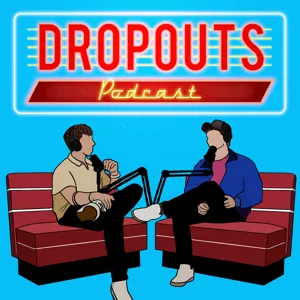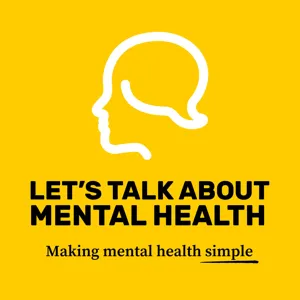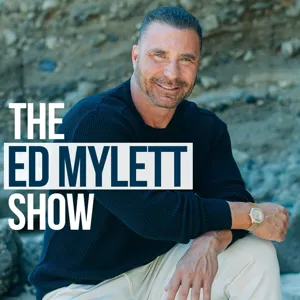Podcast Summary
Interpersonal costs of the epidemic: The epidemic brings about interpersonal strains and social costs, emphasizing the importance of effective communication and managing relationships to maintain mental well-being.
The ongoing epidemic has brought about various interpersonal costs that go beyond the obvious human and economic impacts. Being stuck at home with family members can lead to strain, even in loving relationships. On the other hand, those who are isolated from their families or unable to attend school or work face social costs. The psychological toll of sustained stressors, especially when we have little control over them, can be significant and wear us down over time. It's essential to manage our interactions effectively to stay in the "yellow zone" and avoid the negative consequences of prolonged stress and conflict.
Recognizing and validating emotions during a crisis: During a crisis, it's essential to acknowledge and support each other's emotions while navigating shared challenges, recognizing that our individual experiences contribute to the collective human response.
During challenging times, such as a global crisis, it's essential to recognize and validate our feelings and those of our loved ones. The current situation is affecting us all psychologically and emotionally, and it's normal to experience a range of emotions. Moreover, the crisis brings additional pressures beyond the fear of illness, such as economic concerns and uncertainty about the future. These stressors can put a strain on relationships, making it important to communicate effectively and appreciate each other's unique perspectives. As we navigate these challenges, it's crucial to remember that we're all in this together and that our experiences, though individual, make up the collective human response to the crisis.
Strive to do good stuff, not stupid stuff: Positive interactions outnumber negative ones for healthy relationships, admit fault and move on to minimize conflicts, and do good stuff instead of stupid stuff.
During challenging times, it's essential to consider how we want to be remembered and how we want to act towards others. We're all going through this experience together, and it's crucial to keep pushing back against negative interactions and avoid getting into unnecessary quarrels. The consequences of our actions, especially during high-stakes situations, can have long-lasting effects. Research shows that positive interactions need to outnumber negative ones to maintain healthy relationships. By admitting fault and moving on, we can minimize unnecessary conflicts and make a positive impact on those around us. In essence, let's strive to do good stuff rather than stupid stuff.
Choosing battles wisely in relationships during stressful times: Focus on maintaining harmony, let some disputes go, communicate effectively, and divide responsibilities fairly to prevent unnecessary conflict.
During times of high stress and anxiety, it's important to carefully consider which battles to pick in relationships. Chronic arguments about touchstone topics, even in otherwise healthy relationships, can escalate and cause significant strain. For instance, disputes over productivity or household chores, which may have been tolerable under normal circumstances, could become deal-breakers in the current context. According to research from John and Julie Gottman, even long-term happy couples argue about the same things, but now is not the time to rehash those arguments. In fact, during times of intense anxiety, it may be best to let some things go and focus on maintaining harmony in the relationship. Additionally, inequities in tasks like housework, which are common in heterosexual couples, may become more intolerable in the current situation. It's essential to communicate effectively and divide responsibilities fairly to prevent unnecessary conflict. Overall, the current moment calls for compassion, understanding, and selective engagement in disputes.
Focus on building internal strengths and nurturing relationships during challenging times: Invest in psychological well-being and relationships as essential resources for weathering life's storms
During challenging times, it's crucial to focus on building internal strengths and nurturing relationships, often referred to as "social capital." This idea was emphasized in a fatherly rant, drawing parallels to how we've been carried through daily circumstances but now find ourselves facing groundlessness when those supports fall away. The storm metaphorically represents the current crisis, leaving us with only what's within us. Therefore, it's essential to invest in our psychological well-being and relationships, creating deposits for the present and future. This message is echoed in the popular Doctor John DeLaney Show, where real people call in for advice on navigating tough situations related to relationships, anxieties, and emotional well-being. The show offers a practical and direct approach to dealing with these challenges, making it a valuable complement to the Being Well podcast. In essence, the takeaway is to prioritize our internal strengths and relationships during difficult times, as they will serve as essential resources for weathering the storms that inevitably come in life.
Feeling Groundless as We Age: Finding New Ways to Define Ourselves: As we age, changes in personal and professional circumstances can impact our self-concept, leading to feelings of groundlessness. It's important to acknowledge these feelings and seek resources for personal growth, such as science-based information from podcasts and effective skincare solutions.
As we age, we may feel a sense of groundlessness due to changes in our personal and professional circumstances, which can impact our self-concept. The loss of identities we once held, such as being good at school or work, can leave us feeling uncertain and seeking new ways to define ourselves. The ZOE Science and Nutrition podcast and OneSkin offer valuable resources for personal growth in different areas of life. The podcast provides science-based information to make healthier choices, while OneSkin's simple and effective skincare solution helps maintain healthy skin. Additionally, it's essential to acknowledge and reflect on the feelings of groundlessness and consider new ways to redefine ourselves beyond the roles we once held.
Maintaining a sense of worth and purpose during change: Connecting with others through kindness and agreement helps maintain a sense of worth and purpose during times of change.
During times of change or loss of familiar roles, it can be challenging to maintain a sense of worth and purpose. This can lead to feelings of uneasiness and even depression. However, there are simple actions we can take every day to help fill this void. First and foremost, being good to others and not being a jerk is a powerful way to connect and find common ground. This can be as simple as listening and showing support. Another important approach is to start by joining with others, looking for common ground and agreement, rather than detaching and analyzing objectively. These small actions can help us navigate through times of uncertainty and maintain meaningful connections with those around us.
Finding ways to contribute and give during challenging times: Giving through time, resources, or kind words brings fulfillment and fosters self-worth. Recognizing and acknowledging kindness builds resilience and strengthens relationships.
During challenging times, finding ways to contribute and identify good purposes can help individuals derive a sense of self-worth. The act of giving, whether it's through generosity of time, resources, or kind words, can bring fulfillment and provide a sense of connection to others. Additionally, recognizing and acknowledging moments of kindness and compassion towards oneself and others can foster self-worth and promote resilience. The simple acts of touch, attention, and appreciation can go a long way in building stronger relationships and creating a positive impact on both personal and interpersonal levels.
Maintaining Emotional Connections During Physical Distancing: Lean in emotionally, use technology to stay in touch, remember human connection, practice empathy and compassion, and cultivate a sense of common humanity during challenging times.
Even during challenging times of physical distancing, it's essential to lean in emotionally and maintain connections with others through acts of kindness, love, and attention. Technology can be a valuable resource for staying in touch, but it's also crucial to remember our deep-rooted human connection. This experience serves as a reminder of our interdependence and offers an opportunity for practice in empathy and compassion towards those around us. By tuning into feelings of connection and appreciation, we can cultivate a sense of common humanity and comradeship.
Expressing love and compassion towards others can help alleviate feelings of loneliness: Actively expressing love and compassion towards others can improve mood, strengthen relationships, and benefit well-being during social isolation
During times of social isolation, it may seem counterintuitive, but actively expressing love and compassion towards others can help alleviate feelings of loneliness and improve one's own well-being. By focusing on sending positive energy to others, we can build up inner reserves of kindness and compassion that will benefit us in various ways. This loving and generous mindset can create a sense of connection and community, even when physical interaction is limited. So, when feeling lonely, try sending love and compassion to someone in your mind, and notice how it makes you feel. Remember, it's not about being needy or clingy, but about expressing a gracious and generous lovingness. This simple act can help improve your mood and overall well-being, and it can also strengthen relationships, even from a distance.
Support your favorite podcasts by subscribing, rating, and leaving a review: Subscribing, rating, and leaving a review for a podcast can help improve its visibility and support the creator
Subscribing, rating, and leaving a review for a podcast can significantly impact its rankings in iTunes. This simple action can bring joy to the podcast creator, who may be highly competitive and constantly checking their ratings. So, if you enjoy listening to a particular podcast, consider taking a few moments to subscribe, rate, and leave a review to help support the creator and improve their visibility in the podcast community. This small gesture can make a big difference in the lives of those who put their hearts into creating engaging and informative content. Thank you for listening and for being a part of this community.






